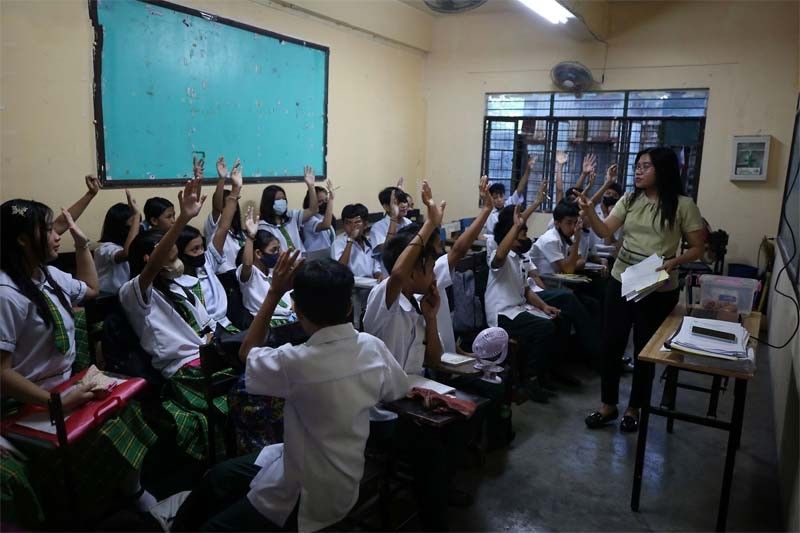Teachers’ group wants MATATAG curriculum implementation stopped

MANILA, Philippines — A teachers’ group wants the Department of Education (DepEd) to stop its implementation of the revised Grade 1 to 10 curriculum dubbed “MATATAG” and instead consult education stakeholders for “a relevant and responsive curriculum.”
In a statement yesterday, the Alliance of Concerned Teachers (ACT) called the DepEd’s implementation of the MATATAG Curriculum “premature” and subjects students and teachers to another experimental education scheme after the K-12 program’s implementation in 2012, an equally “problematic” curriculum.
“Just like in the implementation of K-12 in 2012, it is disheartening that after more than a decade, the DepEd would tell the public that an implemented curriculum is problematic,” the ACT said.
“The worsening education crisis stems from the government’s failure to significantly overhaul the curriculum, address education shortages, capacitate and empower teachers through improving their economic and working conditions and conduct an evidence-based nationwide learning assessment to determine the extent of learning loss brought about by faulty curriculum and aggravated by two-year school closure during the (COVID-19) pandemic,” it added.
Benchmarked on the “decongestion” of learning competencies, such as reducing subjects in the early grade levels to focus on foundational skills such as oracy and numeracy, the MATATAG Curriculum intends to improve students’ learning outcomes and help them succeed.
After the pilot tests this school year, the new curriculum will be implemented in phases: first in preschool and Grades 1, 4 and 7 in all public and private schools starting SY 2024-2025; Grades 2, 5 and 8 in SY 2025-2026; Grades 3, 7 and 8 in SY 2026-2027 and Grade 10 in SY 2027-2028.
With the commencement of pilot tests yesterday, the ACT said the DepEd should stop the pilot implementation altogether and draft a relevant and responsive curriculum with education stakeholders that would “genuinely” produce graduates who can contribute to nation-building.
“The benchmarking of the 21st-century skills development to produce graduates is aligned to the demands of foreign entities. This runs counter to our need to produce graduates that should be inclined to the constitutional mandate of education to establish, maintain and support a complete, adequate and integrated system of education relevant to the needs of the people and society,” the ACT said.
“It is necessary to democratically and genuinely draft a relevant and responsive curriculum that will produce graduates who will contribute to nation-building – a nation that addresses the needs of the Filipino people for food security, development of small and medium enterprises, utilization of science and technology for agricultural development and establishment of basic national industries for the common people and not for the profit-generating capitalist entities,” it added.
The mass training of teachers for the full implementation will begin next year while the procurement of textbooks and other learning materials has already commenced.
- Latest
- Trending





























